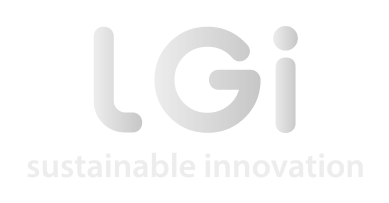LGI is involved in several projects that foster the development and implementation of climate services. This article explores our work in two such projects:
- As part of our involvement in the S2S4E project, our team took a particular focus on the renewable energy sector, playing an active role in carrying out an economic analysis of a climate forecasting tool to improve its usability for energy providers. This innovative climate service can help build resilience to extreme weather events for the renewable energy sector.
- As a partner in the FOCUS-Africa project, LGI has been working on assessing the socio-economic impact of climate services. Users are essential to include if the services developed are to be of value.
Testing climate tools for the S2S4E project
The S2S4E project designed an online climate science tool to tackle the impact climate change has on the renewable energy sector. In this context, our economic analysis has attempted to support the sector in improving the resilience of renewable energy. Partnering with industrial and academic partners across Europe, we’ve been able to better understand the impact of the project’s Decision Support Tool (DST) on actual decision making. The online tool was developed to help energy companies predict weather conditions weeks or months in advance in order to be better prepared for extreme climate events.
Working closely with three European energy companies – EDF, EDP and EnBW – LGI analysed to what extent the companies would be able to adjust their operational planning based on the tool.
![25390 [Converti]-1](https://lgi.earth/wp-content/uploads/2023/07/25390-Converti-1.png)
The need to focus on demand
Since users first need to build trust in climate forecasts before integrating them into their business operations, an assessment of the key factors influencing trust in the DST was conducted to predict future use. We analysed competitive advantages and drawbacks of the service, such as the way complex forecast information is displayed visually, and the timing of when forecasts are updated.
Our analysis also demonstrated the necessity of having users involved in co-developing climate services. Conclusions of our research show that the framework of climate services must be based, first and foremost, on the actual needs of the intended users. Understanding their needs is key to improving climate services such as the DST.
Building a user-centric approach
Based on our S2S4E findings regarding the importance of science and society going hand-in-hand in order to foster climate services usability, LGI has become involved in the FOCUS-Africa project with a particular focus on facilitating both scientific and socio-economic research. Both types of research are equally needed in order to face the challenges presented by climate change. Our team is convinced that by following the practice of putting users at the centre of research, the climate sector will be able to better adapt to the risks of climate change.
Asking the right questions early on
The FOCUS-Africa project is still ongoing and its related climate services continue to be under development. Our team is working on a methodology to assess the socio-economic impacts of climate services. We’ve been assessing how climate information can improve the design and management of agriculture, infrastructure and energy systems in countries in the Southern Africa region, with the aim of applying this impact assessment method in various contexts. For instance, we focus on how smallholder farmers in Tanzania and Malawi are able to adjust their farming choices based on forecasts of the rainy season. We are also looking at the impact that climate-resilient rice and cowpea varieties could have on farmers in Mozambique.
In order to provide a level of service that promotes greater social advantages and supports inclusive economic growth, user demographics must be taken into account when developing specific climate services. For this reason, co-design and stakeholder engagement play a vital role in the research, allowing the proposed approach to be based on local contexts.

Jasmine Nicoletti
Dissemination Officer
Meet me on LinkedIn
The views and opinions expressed in this blog post are solely those of the original author(s) and/or contributor(s). These views and opinions do not necessarily represent those of LGI or the totality of its staff.




FOLLOW US